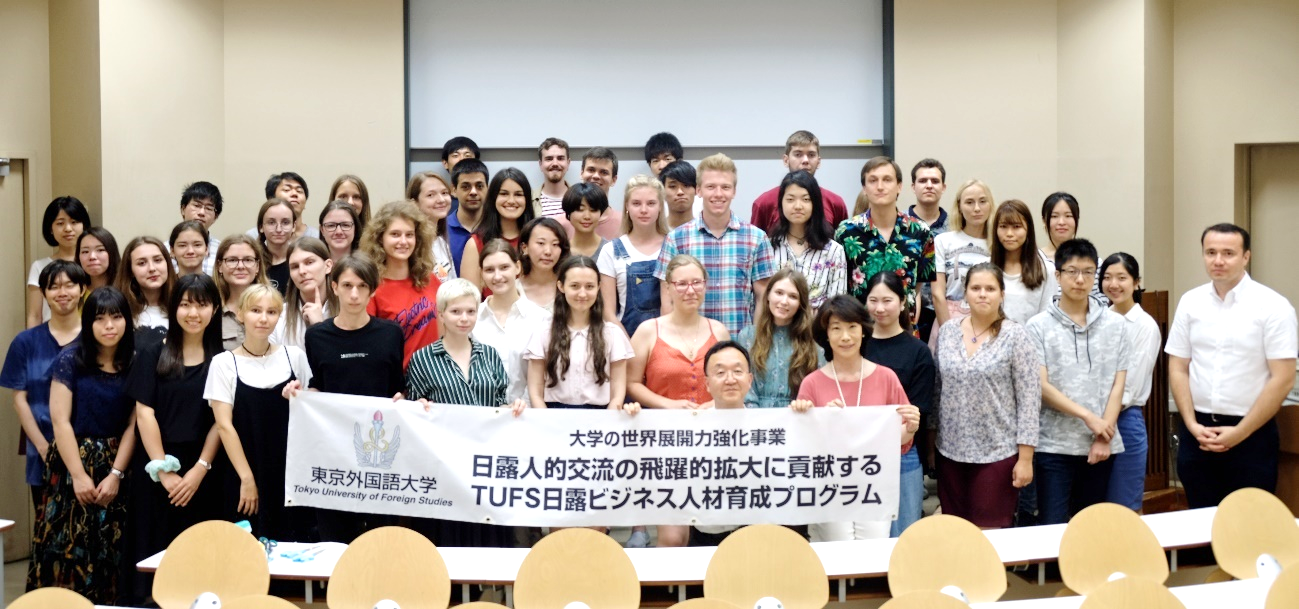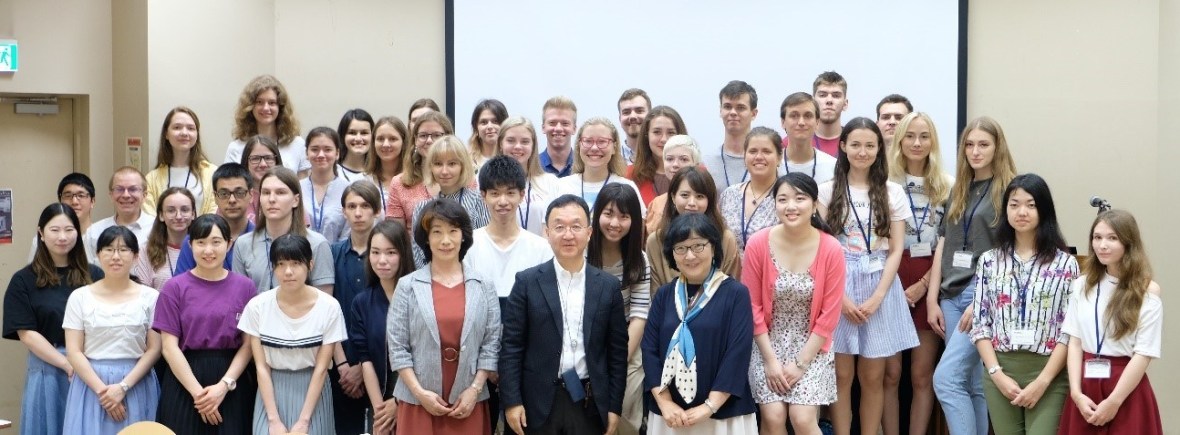The 2019 Japan-Russia business Summer School was held at TUFS for two weeks starting on Monday, the 22nd of July. In the questionnaire distributed afterwards, all participants reported that they would recommend the program to others, of whom 95% said that they would definitely recommend it to others. Such results reflect how satisfactory the program was this year. (The images above are of the opening ceremony)
Japanese-Russian Tandem Learning
The day after the Russian students arrived, program coordinators started the tandem learning portion of the summer school. Russian participants were paired with Japanese students who are studying Russian at TUFS, and for three days they studied together in tandem.
On the first day of the tandem sessions, TUFS doctoral student Benjamin Larson, who is engaged in researching tandem learning, gave an overview in English for the Japanese and the Russian participants about the principles and methods involved in tandem learning.

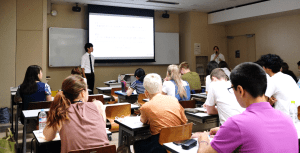
In addition to the sessions which focused on the themes of, “self-introduction,” “reasons for studying Russian/Japanese and what is difficult about each language,” “impressions of the field trip,” which were decided by program coordinators ahead of time, there were also sessions in which participants were free to choose a theme for themselves.
Additionally, on the 27th of July participants in the summer school attended a conference held by the Japan Visualmedia Translation Academy (JVTA). While the students may have had the opportunity to study with translators or interpreters, this was doubtless a fascinating opportunity for them to be exposed to the complexities of translating subtitles.
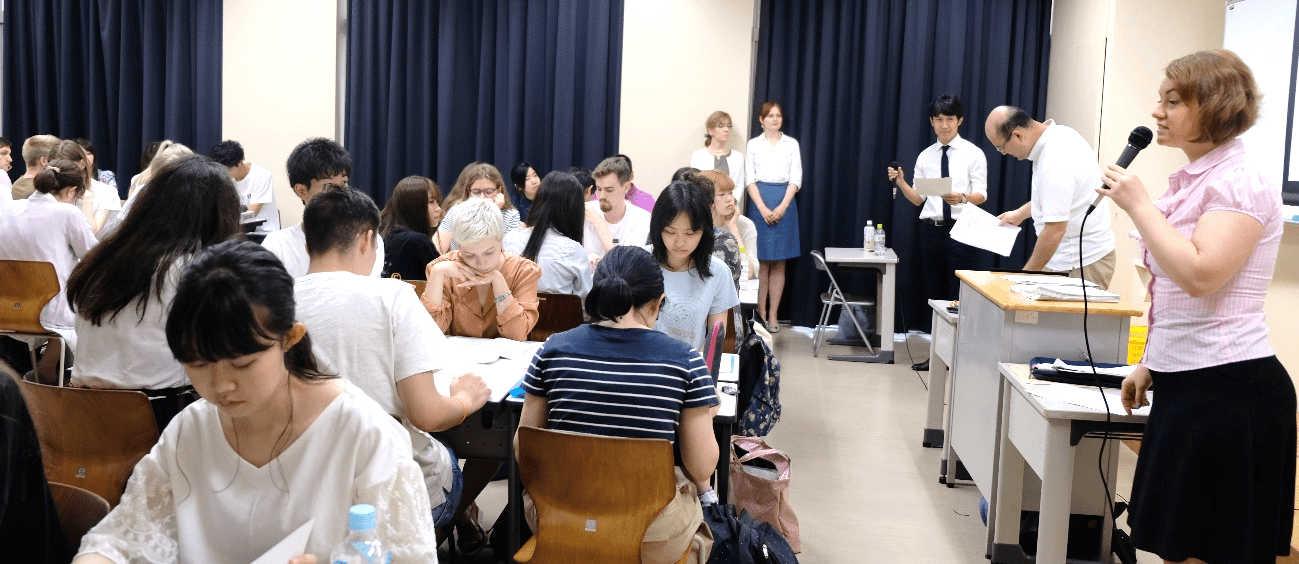
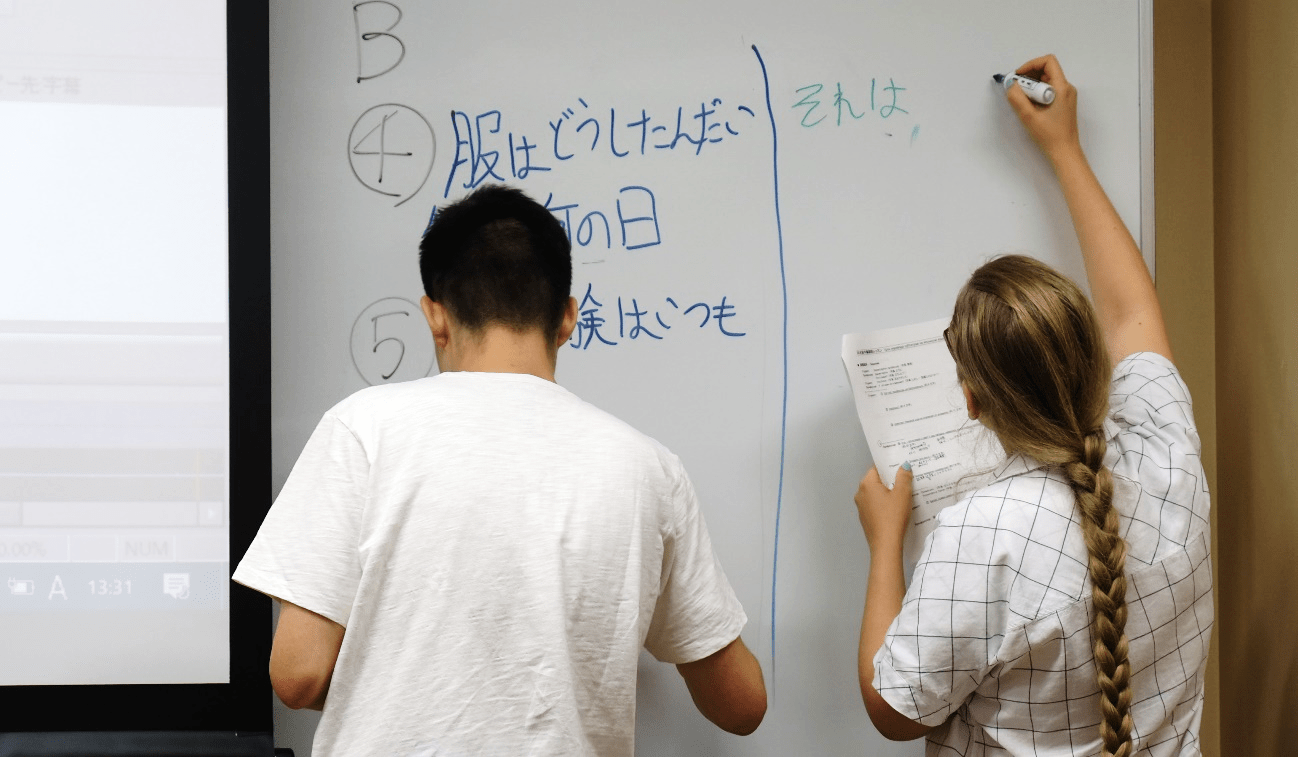
During the workshop, Japanese and Russian students were assigned groups, each of which was given a video clip to create subtitles for. While their assigned clips were only a few second long, they nonetheless engaged in spirited debates about how to best translate the content. In fact, their discussions were so spirited that they were down to the wire on their final translation drafts.
Day-long Field Trip
On the 24th, the participants in the Japanese-Russian tandem took a day trip into Tokyo. Participants joined together in groups of four including both Japanese and Russian members, and in the morning, they visited the Edo Tokyo Museum.
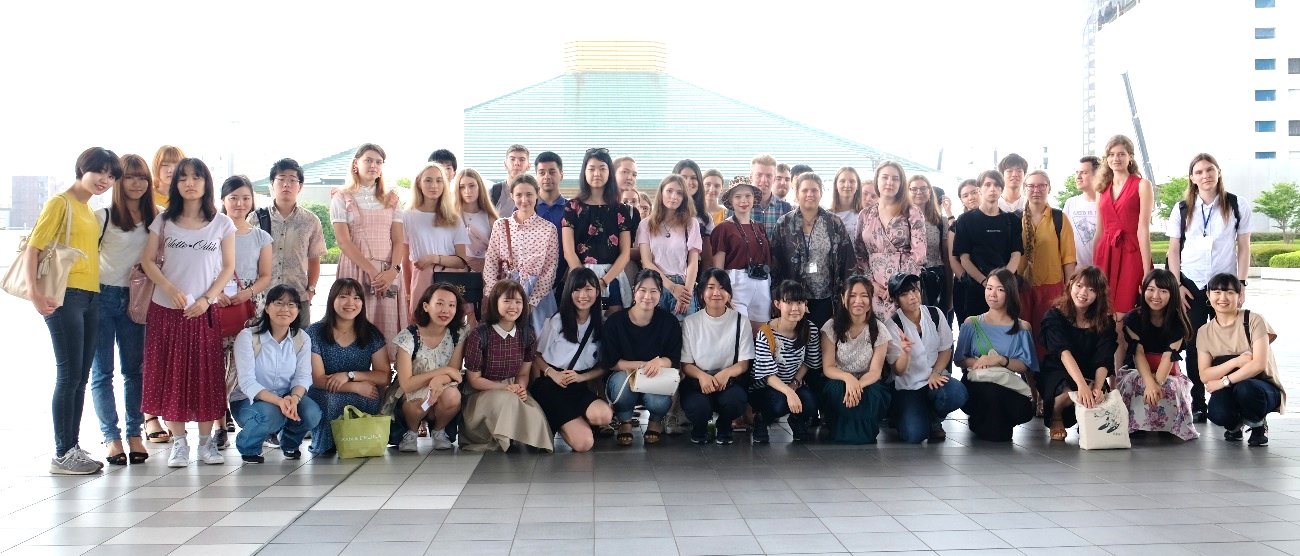
Japanese students explaining the museum exhibits to their partners in Russian.
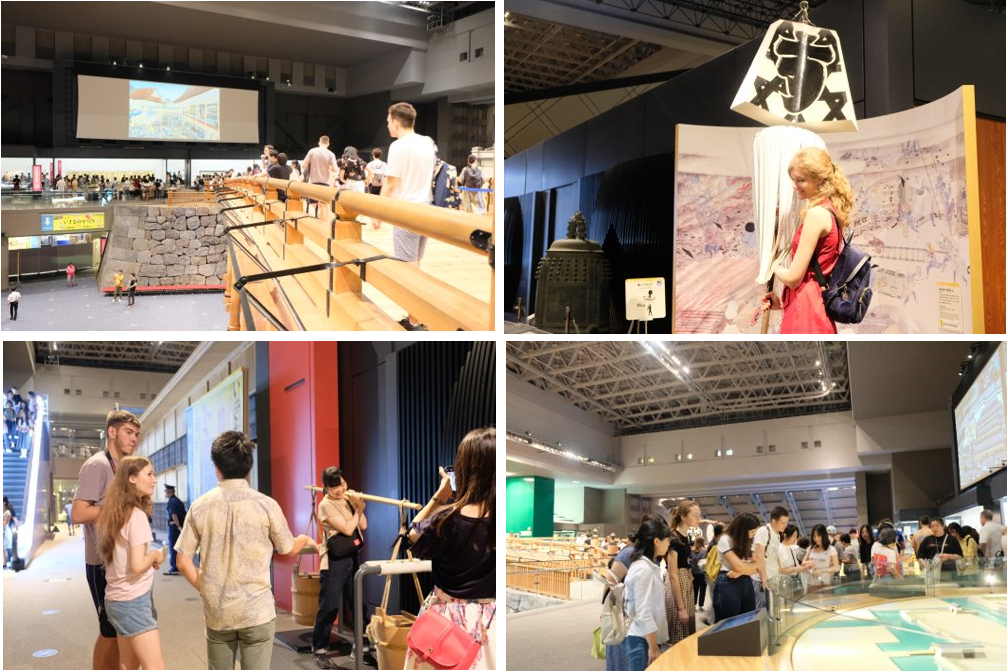 In the afternoon, the students visited Ueno Park. With the Japanese students leading their Russian partners, they visited such sites as the open-air market of Ame-yokocho and Ueno Toshogu Shrine. All in all, it was a very rewarding day. The following day, students used their experiences during the day trip as the theme for their tandem study, which provided the opportunity for them to share impressions of the trip.
In the afternoon, the students visited Ueno Park. With the Japanese students leading their Russian partners, they visited such sites as the open-air market of Ame-yokocho and Ueno Toshogu Shrine. All in all, it was a very rewarding day. The following day, students used their experiences during the day trip as the theme for their tandem study, which provided the opportunity for them to share impressions of the trip.
International Japanese Studies (国際日本学)
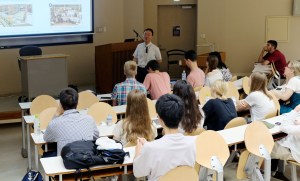
Starting on Monday, the 29th, the Russian participants in the summer school began attending lectures, taught in Russian, on the subject of International Japanese Studies. These lectures covered a wide range of fields, including business, economics, employment, the history of Russo-Japanese relations, and culture, all from a Japanese perspective. More than ten TUFS students, whose Russian-language abilities are already advanced, were also able to attend.
The first day began with an orientation conducted by Professor Arai, which included an introduction to the Inter-University Exchange Project (Russia) and the 8-point Russo-Japanese Economic Cooperation Plan.
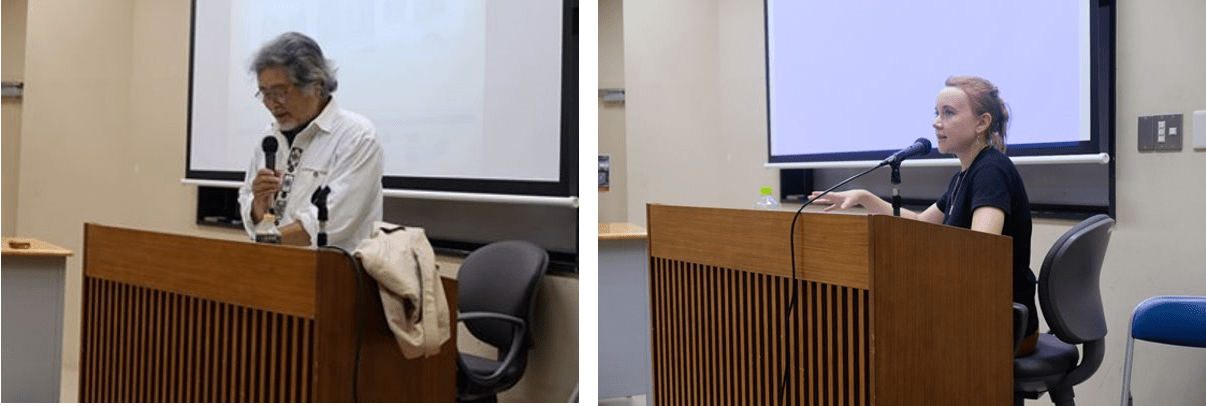 This was followed by Professor Emeritus Masaji Watanabe gave a lecture on the theme of TUFS and Metchnikoff. Lastly, Anastasia Monakova, a specialist on broadcasting and employee of NHK International Broadcasting, gave a lecture on theme of the work she did at NHK as a Russian journalist.
This was followed by Professor Emeritus Masaji Watanabe gave a lecture on the theme of TUFS and Metchnikoff. Lastly, Anastasia Monakova, a specialist on broadcasting and employee of NHK International Broadcasting, gave a lecture on theme of the work she did at NHK as a Russian journalist.
After the lectures, the participating students accompanied Ms. Monakova to Tama Cemetery, where they visited the graves of such famous individuals as Richard Sorge and Heihachiro Togo, both of whom had significant influence on Russo-Japanese relations. These activities were reported on by NHK World Japan in two parts (click here to listen part 1, part 2) .

On the 30th, Mr. Takumi Nakamura, the representative director of Sociarise Co., ltd., gave a lecture on getting employed in Japan, followed by a workshop on job-hunting. It was an opportunity for the Russian students to learn about seeking employment in Japan; such knowledge could be potentially life-changing for them. Last, Professor Arai engaged in a lecture on corporate R&D, in anticipation of the students’ company visits the following day.

On Thursday, the 1st of August, Professor Petr Podalko of Aoyama University gave a lecture on the history of Russo-Japanese relations, giving the students an overview of the long history of the relationship of Russia and Japan in the short span of three hours. Afterwards, Ms. Eleonora Shumilova, special correspondent in Tokyo for the Russian state-owned media company Sputnik Japan, gave a talk on working in Japanese-language broadcasting in Russia.
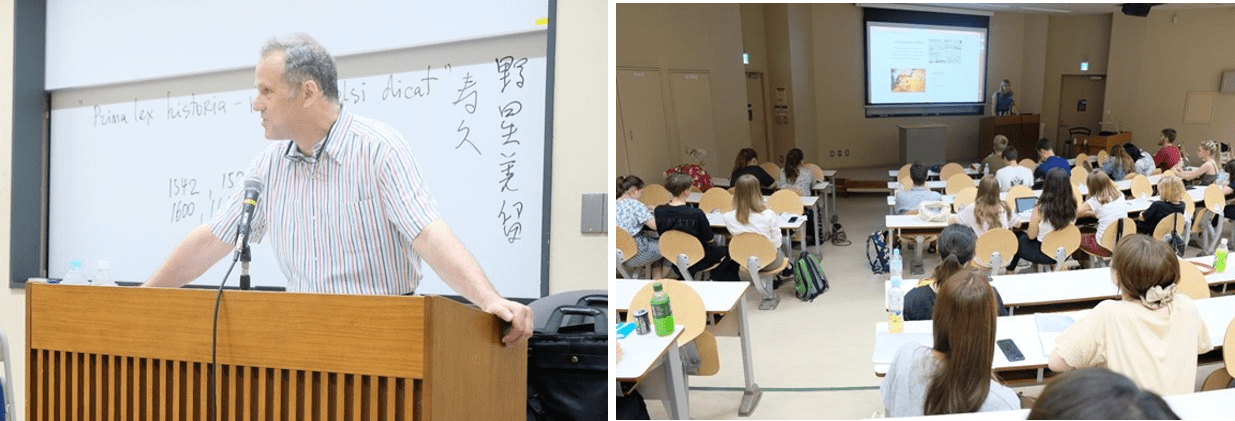
On the 2nd of August, Professor Murod Ismailov, who is a part-time lecturer at TUFS, gave a lecture and a workshop on the topic of, International Politics: How does Japan View the World? After an orientation about current Japanese foreign policy, the workshop shifted to a more student-centered approach, and the students formed groups to produce presentations.

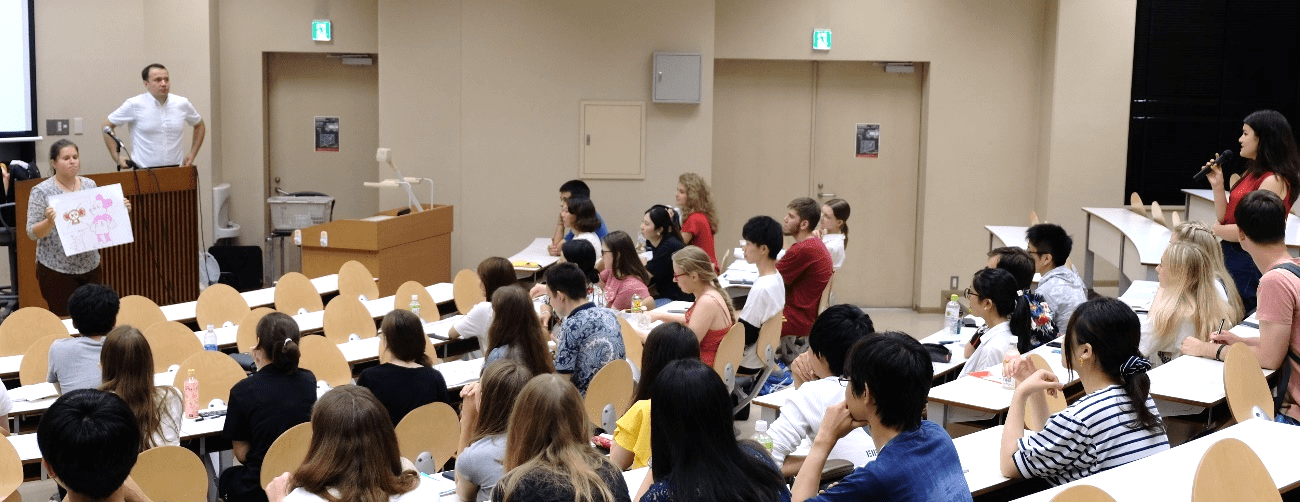
One-day Corporate Visit
On the 31st of July, the participants spent a day visiting the headquarters of Sony in the morning, and the NHK Broadcast Center in the afternoon.
Closing Ceremony
After two weeks, the program concluded on Friday, the 2nd of August. The Russian participants received certificates of completion.
